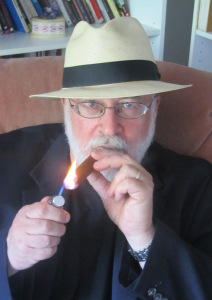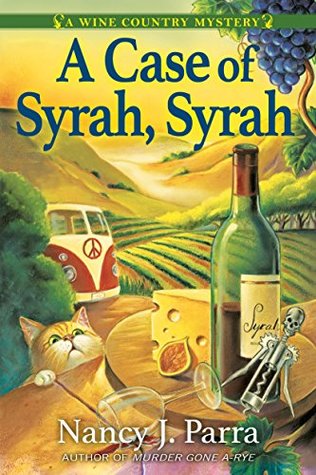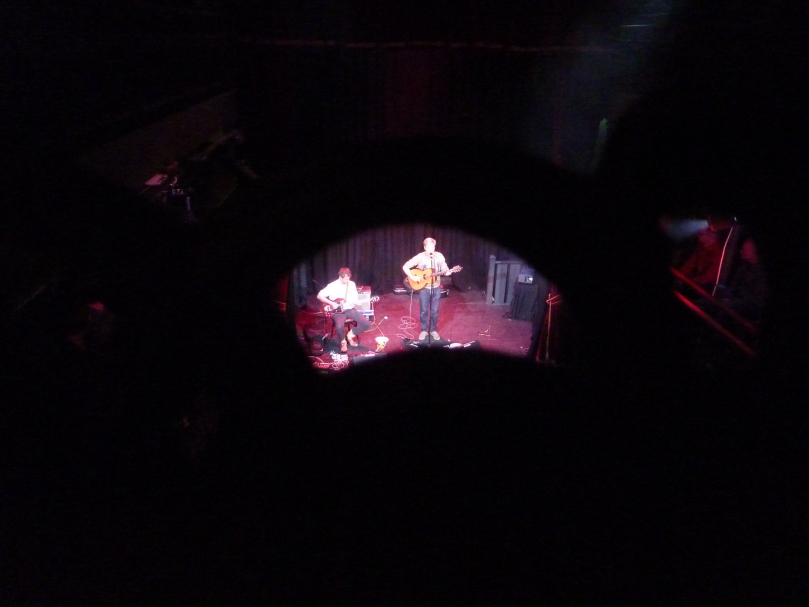First published in April 2012.
The Land of Decoration is Grace McCleen’s debut novel. It has been selected as part of the Waterstone’s 11, which aims to showcase this year’s most promising writers.
The Land of Decoration is told from the first person perspective of ten-year-old Judith McPherson. Her narration is childish at times, infused with buckets of naivety and a wry humour which it seems she has adopted in order to make the situations which unfold around her lose much of their terrifying seriousness. She asks questions of the kind which inquisitive children of her age revel in – what dying is like and how long someone can breathe underwater, for example. Her observations on life work perfectly with the story. 
Judith is an extremely creative character who has a fresh way of viewing the world. She is able to see the uses of everything which is discarded by those around her. In Judith’s world, a sweet wrapper can become ‘flowers or a rainbow or… a crown’, and a shoelace found in a puddle finds a new lease of life as a hose, a stream, a python or a creeper.
Judith really captures the affection of the reader as the story progresses. She builds up ‘the Land of Decoration’ of the novel’s title on her bedroom floor ‘from things no one else wanted’ and states rather sadly that ‘it has taken most of my life to make’. In her Land of Decoration, Judith is trying to create her idea of a perfect world where ‘there won’t be any unbelievers or any war or any famine or any suffering… and those who have died will come back to life and those that are living will never die at all’. Her ultimate goal is incredibly poignant; that in the new world she has created, she will be able to see her mother who died when she was just a baby. She begins to believe herself to be a worker of miracles when, after covering the Land of Decoration in a blanket of snow, she wakes to a white world outside her window. Soon afterwards, she begins to converse with God about the choices she makes throughout the novel.
The reader feels such empathy for Judith from the outset, particularly when the darker elements of the story come into focus. Despite being bullied at school, having no friends to speak of and a relatively strained relationship with her father which has resulted in rather a lonely childhood, she has an undying belief in the power of faith. God is a large part of the young girl’s life and she and her devout father read the Bible together every day without fail and attend meetings with other ‘Brothers’ and ‘Sisters’.
Judith’s father, factory worker John, is a character quite unlike her own. He provides very few answers to the questions she asks and reads incessantly to her from the Bible in order to ‘save’ her life. The reader feels relatively distanced from him for the majority of the novel. We do not know what motivates him or what he thinks about, as we see what Judith sees and nothing else. As a result of this, the details included in the numerous character descriptions throughout are refreshing. Some of the best examples are ‘he’s not much taller than me but wears little boots with heels’, ‘hair the colour of blackbirds’, ‘a mouth like a slit [which]… stretches like a concertina when she talks’, and Judith’s unusual description of herself: ‘I am ten, and four foot four, and… most of the time I am just the right temperature’.
The novel is set against the turbulent backdrop of factory strikes and irreconcilable change, elements of which Judith is unable to grasp. Seeing the portrayal of such situations through her child’s eyes works incredibly well.
McCleen has woven a sense of magic and wonder into the novel from the outset. Intriguing and sensuous lines, such as ‘I made a sea from a mirror, reflecting the sky and the boats and the birds’ and ‘I made houses from a matchbox and a bird’s nest and a pea pod and a shell’ can be found throughout.
The novel is almost a biblical parody. It opens with the line ‘In the beginning there was an empty room, a little bit of space, a little bit of light, a little bit of time’, a definite echo of the beginning of the Bible. Although the biblical elements add an interesting twist to the novel, they do feel a little overdone on a couple of occasions. The story would have worked just as well if some of the numerous religious references, Bible quotes or church scenes had been omitted. The way in which Judith and God converse also seems to drain some of the perfectly crafted magic from the book, which is a shame.
The chapters in The Land of Decoration are all relatively short but are very well defined. Some of them have very matter-of-fact titles, ranging from ‘Why I Will Not Live Very Long’ to ‘How to Make a Man’. Others are almost stylistically whimsical – ‘Snowflakes and Mustard Seeds’ and ‘Dust and Stars’ – and others delightfully childish and reminiscent of primary school writing tasks – ‘The Best Day of My Life’. The writing itself is stunning in places, particularly with regard to the descriptions given. The strength of the narrative voice which McCleen has created far surpasses the majority of the dialogue throughout, which seems a little stolid and mundane at times.
In The Land of Decoration, McCleen has created a believable and absorbing story and a realistic narrative voice. The novel is quirky and different, even original at times. It is an incredibly promising debut and as a formative novel charting a young girl’s growing up, it works very well.
Purchase from The Book Depository
Advertisements Share this:




